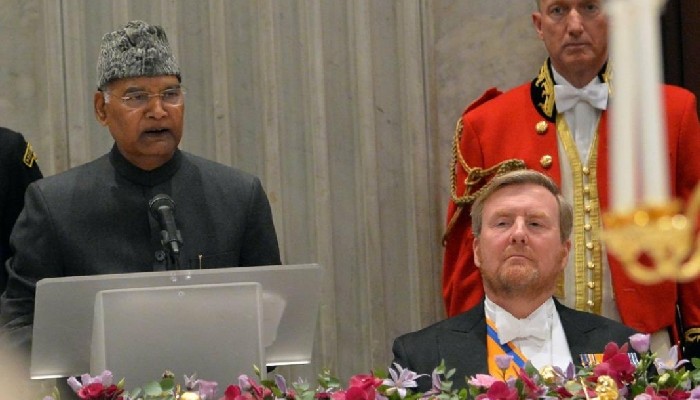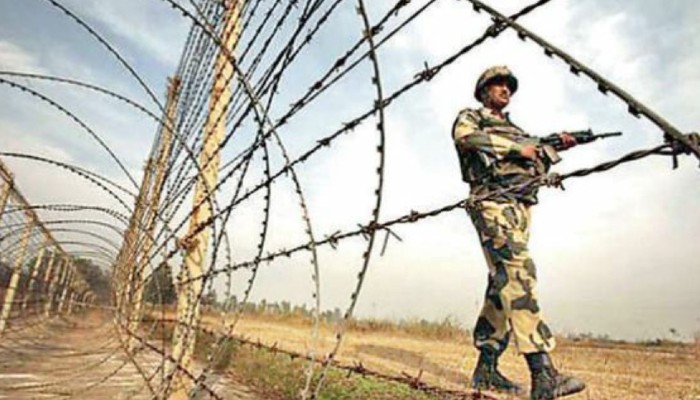The differences have sharpened between ISI and Kashmiri separatists in the aftermath of the whittling down of Article 370 and other changes in the status of Jammu and Kashmir
Among the other age-related ailments, the 90-year-old Kashmiri separatist leader Sayeed Ali Shah Geelani suffers from dementia and, therefore, doesn’t even realize he has been conferred with Pakistan’s highest civilian award and also that he has ‘rejected’ the same within a week.
The bizarre situation revolves around a full-blown rift between the Pakistan-based Kashmiri group the Hizbul Mujahideen whose cadres want an exit from the gun-based struggle.
The differences sharpened in the aftermath of the whittling down of Article 370 and other changes in the status of Jammu and Kashmir.
The family of the 90-year-old separatist said the letter – written by hand in Urdu on the proper letterhead – is unauthorized and they have no clue to its creator. The letter that has been doing rounds on social media for two days rejects Nishan-e-Pakistan and is ‘signed’ by Geelani.
“He is in no position to comprehend all these events; doesn’t even know about Nishan-e-Pakistan or the letter,” family sources said.
Who is circulating the letter and why is even his family clueless about its creator?
The letter is linked to an ongoing rift between Geelani-supporters and the other group in the Pakistan-based Hurriyat Conference, the latter being patronized by the ISI.
Baffled by the August 5 changes in the status of Jammu and Kashmir, ISI had decided to weaken the Hizbul Mujahideen, a once indigenous Kashmiri militant group whose leader Syed Salahudin (Moulvi Yusuf Shah) escaped a murderous attack by his rivals in Muzaffarabad recently.
A spate of incidents in Pakistan along similar lines pushed Geelani to tender his resignation from the Hurriyat Conference, a conglomerate of 50 plus groups and parties created at the behest of Islamabad way back in 1990 to give a political façade to terrorism in Kashmir.
Geelani’s resignation saw many red faces in Islamabad as he made a litany of accusations against Pakistan for patronizing the corrupt Hurriyat leaders and propping them against him.
His resignation prompted Islamabad to quickly process a longstanding proposal of conferring Nishan-e-Pakistan on him. The proposal was first mooted by the government of Nawaz Sharif.
The award was to be a face saver for Pakistan that had used Geelani as a pro-Pakistani ideologue to push its narrative against India in Kashmir for nearly three decades.
Geelani had become increasingly suspicious of the Muzaffarabad-based Hurriyat leaders, who liaised with ISI and other Pakistani agencies for Hizbul Mujahideen and Kashmir-based Hurriyat for funds and political directions.
He apparently nominated Abdullah Gilani, a former Hizbul terrorist as convener of Hurriyat in POK. Incidentally, Abdullah is the younger brother of the late Prof SRS Gilani, who was acquitted in the 2003 parliament attack case and has since passed away.
Abdullah, a confidante of Geelani dug out the cases of corruption of several Hurriyat leaders – both based in POK and Kashmir – and conveyed to him. The corruption involved cases of embezzlement in the funds given by Islamabad for distribution among the families of the slain Kashmiri terrorists.
He also unearthed the medical admission scam in which Hurriyat leaders – both in POK and Srinagar – were involved in accepting a bribe to the tune of Rs 20 lakh from each candidate for signing a recommendation letter in his favour for admission in the medical and engineering colleges in Pakistan.
To incentivize terrorism, Pakistan had instituted free and fully-funded studies for the children of slain terrorists in medical and engineering colleges. Since the task of verifying the antecedents of the candidates was given to the Hurriyat leaders, they turned it into a business.
Not only did the Hurriyat leaders accept money as a bribe, they also recommended the undeserving candidates. Many a time, the children of rich and influential Kashmiris including police officers and politicians were sent as Kashmiri orphans. Since terrorists’ families were mostly poor and couldn’t pay up the bribe, the Hurriyat leaders sent the scions of the rich families as 'orphans'.
Besides, sources said post-August 5 changes in Kashmir, Pakistan’s ISI had shifted its focus from Hizbul Mujahideen to terrorist outfits like Jaish-e-Mohammad and Lashkar-e-Taiba. This resulted in fund squeeze for the Hurriyat leaders and Hizb cadres too.
Following Abdullah Gilani’s brief Geelani miffed with Pakistan for patronizing the leaders who had embezzled funds in the name of Kashmiris and given ‘tehreek’ (movement) a bad name. Before his house arrest in 2008, Geelani had managed to radicalise lakhs of Kashmiris through his whirlwind tours and rallies. He would ask the youth to support an Islamic rule in Kashmir and work for making Kashmir a part of Pakistan.
The recent letter is obviously aimed at keeping this rift alive and showing Geelani as being unhappy with Pakistan.
(Writer is a Delhi-based senior journalist; views expressed are her personal)
 Contact Us
Contact Us  Subscribe Us
Subscribe Us









 Contact Us
Contact Us
 Subscribe
Subscribe
 News Letter
News Letter

